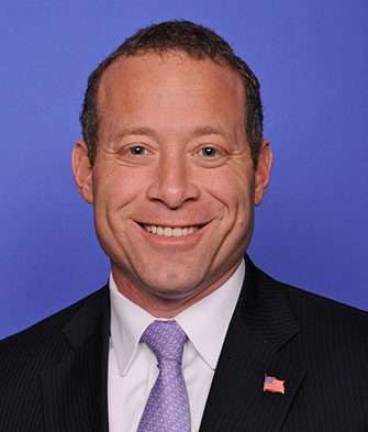NJ Congressmen unite to oppose parts of tax reform effort


By Meghan Byers
While bipartisanship may be in short supply in Washington, D.C., it is alive and vocal in New Jersey, at least in opposition to the elimination of certain federal tax deductions.
As the controversial tax reform bill moves through Congress, anxiety is increasing among New Jersey residents, who would be particularly affected by the proposed elimination of state and local tax deductions, or SALT. In response, two New Jersey congressmen, Rep. Leonard Lance (R-NJ7) and Rep. Josh Gottheimer (D-NJ5), have teamed up to draft their own bipartisan proposal, which they say will “save the state and local tax deduction, cut taxes for New Jersey families and businesses, and reduce the deficit.”
Gottheimer’s district covers 19 municipalities in Sussex County — including Andover Borough, Andover Township and Newton — as well as parts of Bergen, Passaic and Warren counties. Lance’s district covers all of Hunterdon County and parts of Essex, Morris, Somerset, Union and Warren counties.
Lance and Gottheimer, both members of the House Problem Solvers Caucus, unveiled their tax plan last week ahead of the House and Senate Conference, calling it a “fix” that will benefit SALT states in particular.
“This has been around since 1913 for a reason,” Gottheimer said, referring to the Revenue Act of 1913, which states that taxpayers can deduct “all national, state, county, school, and municipal taxes paid within the year, not including those assessed against local benefits.”
The SALT deduction is used by about 30% of all taxpayers in the United States, with New Jersey being one of six states where taxpayers benefit the most from the deduction. The Senate tax reform bill would eliminate SALT entirely, whereas the House bill eliminates a federal deduction for state and local income or sales taxes, and allows a $10,000 maximum deduction for property taxes.
Gottheimer’s office has heard from so many concerned NJ constituents that he has set up a “tax bill hotline” and a dedicated e-mail address for all questions and concerns related to the tax reform bill.
The Fifth District Tax Cut Hotline is a toll free number for New Jersey families and businesses at 800-932-1908. Additionally, residents of New Jersey’s Fifth District can email any tax-related questions or concerns to taxhotline@mail.house.gov.
“People are panicked about the impact on property values, people are anxious about their taxes going up,” said Gottheimer. “We have business owners and CEOs saying, ‘How do I stay in New Jersey? How do I grow in New Jersey? How are we going to keep our economy moving?’”
Only one NJ congressman, Rep. Tom MacArthur (R-NJ3), voted for the House bill in November.
“This legislation will hurt New Jersey families who already pay some of the highest income and property taxes in the nation,” said Rep. Rodney Frelinghuysen (R-NJ11).
The 11th District covers the remaining municipalities in Sussex County, including Byram, Sparta and Stanhope.
Following the Senate vote, Frelinghuysen reiterated his opposition to the current tax reform bill.
“Unless there are significant positive changes in the final tax bill brought before the House and the Senate in coming weeks, I will oppose it due to very negative impacts it will have on so many of my fellow New Jerseyans,” Frelinghuysen said.
“A lot of members on both sides of the aisle have been incredibly supportive,” said Gottheimer. “We spent two months working on this. Once the Senate bill got passed, we thought we should put out our own counter-proposal.”
“Tax reform should benefit all Americans and not pick winner states over loser states,” Lance said. “New Jersey is already one of the highest-taxed states in the Nation, sending a disproportionate amount of funds to Washington. Enough is enough.”
On his Congressional website, Gottheimer has posted a “Moochers Map,” showing the many states that receive more money from the federal government than they pay in taxes. New Jersey gets less back than it pays in.
The plan put forth by Gottheimer and Lance also preserves medical expense and student loan interest deductions.
“Personally, I want to get to ‘yes,’” Gottheimer said. “I want to get to a bill that I can vote for. [...] The only way to get there, truthfully, is in a bipartisan way. Legislation is more durable in the long run when it’s bipartisan. [...] I can’t support a tax hike. [Congressman Lance] and I both agree on that.”
The Republican tax reform package is currently in joint conference of the Senate and the House, where lawmakers seek to reconcile the two bills to present one bill to the president to sign into law. Republicans control both houses of Congress. Republican leadership hopes to have the bills reconciled and the final bill passed before year’s end.